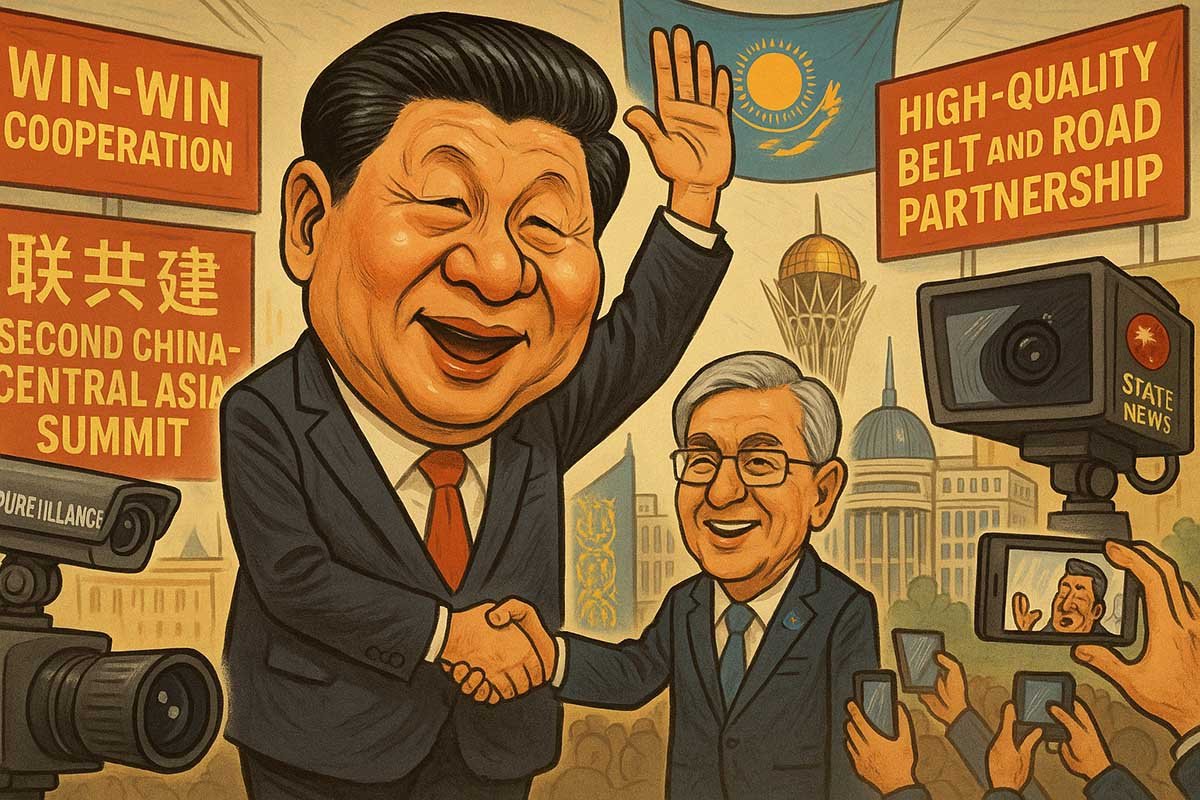Chinese President Xi Jinping is executing a tightly scripted diplomatic offensive across Central Asia, arriving in Kazakhstan to preside over the Second China-Central Asia Summit—an event whose real purpose reads more like a declaration of regional realignment than the bland, handshaking ritual its press releases suggest.
The optics are classic Xi: banners for “win-win cooperation,” state media paeans to “high-quality Belt and Road partnerships,” and a flurry of official news releases painting China as the benevolent architect of Eurasian stability. In Astana, Xi and Kazakh President Kassym-Jomart Tokayev exchanged pledges for deeper economic ties, mutual “security coordination,” and a renewed commitment to regional “non-interference”—the latter a phrase with particular resonance when uttered by the world’s most surveillance-happy authoritarian regime as highlighted here.
For Beijing, this summit is about far more than Kazakhstan’s uranium or Uzbekistan’s cotton. Xi is casting China as Central Asia’s indispensable power broker, urging leaders to “resist external interference” and build a security order independent of Western or Russian hegemony according to official summaries. With the Israel-Iran conflict dominating headlines and upending global energy flows, Xi’s timing is exquisitely opportunistic. The message, echoed across state and pro-government media, is blunt: the West is distracted, Russia is bogged down, and now is the hour for China to lock in new allegiances—preferably with plenty of debt and a side of facial recognition tech.
In public remarks, Xi has offered reassurances that China supports a “peaceful resolution” to conflicts like Israel-Iran, but his focus in Astana remains on “regional sovereignty” and “development-led stability”—diplomatic code for tightening China’s grip on every customs post, fiber optic cable, and port lease from Almaty to Tashkent. Kazakhstan, as ever, is cast in the role of grateful junior partner, welcoming the “historic” summit as a catalyst for jobs, trade, and the kind of security guarantees that only a 24/7 surveillance state can provide.
Behind the “mutual benefit” slogans, the realities are sharper. Xi’s China offers billions for infrastructure, but expects loyalty on Taiwan, Hong Kong, and foreign policy abstentions at the UN in return as signaled in official communiques. In the short term, that bargain looks tempting to Central Asian rulers facing Russian unpredictability and Western conditionality. But the long-term effect is to tie local economies and security services ever closer to the Chinese model—a model where dissent is an algorithm, elections are a rubber stamp, and “friendship” means data flows one way.
As the summit continues, Xi’s ambitions are unmistakable: Central Asia as a showcase for China’s “order”—one where sovereignty means less freedom from outside interference, and more submission to Beijing’s playbook. The rest of the world may be fixated on missile launches and oil prices, but in the corridors of Astana, Xi is setting the rules for the new authoritarian normal—one summit, one partnership, and one iron handshake at a time.
